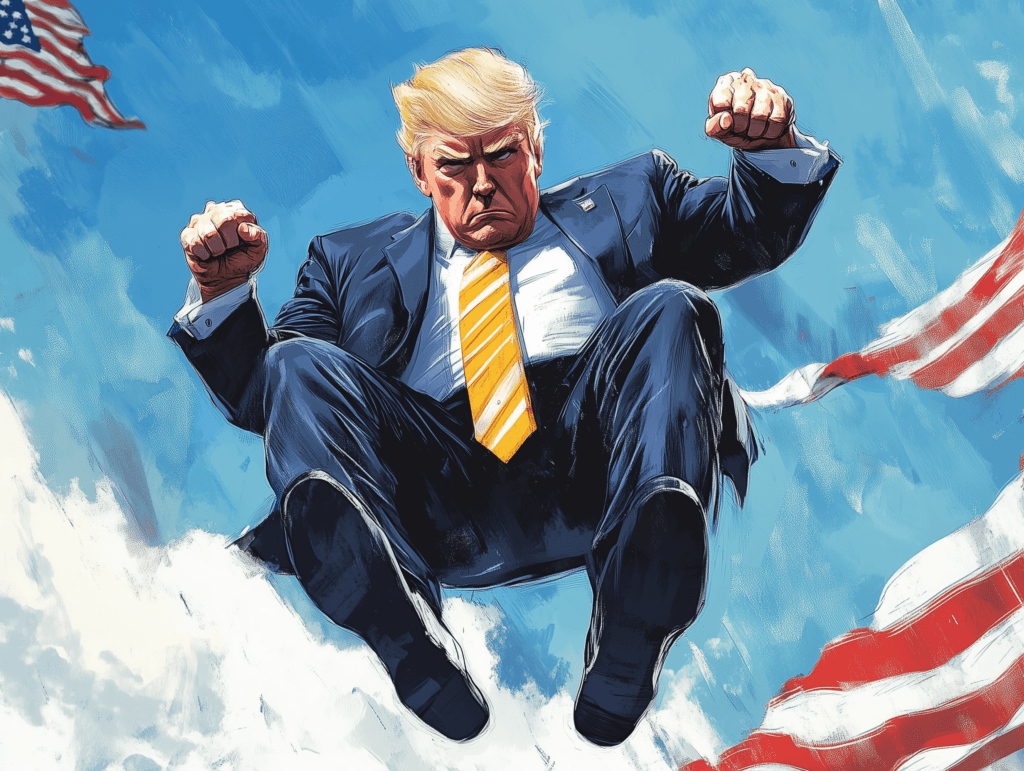Trump’s America

This morning, America awoke to a different reality—a different era of post-Biden, Trumpian politics. For some Americans, this is a scary reality; others see it as a necessary change. The question that haunts many Americans is, how different will America look for the next four years?
The answer, as always, lies in the details of policy shifts, the tone of governance, and the public’s reaction to the new administration’s priorities. In the first hours after the transition of power, executive orders and sweeping declarations began to paint a picture of a drastically altered trajectory for the nation.
The Return of Populist Rhetoric
Under Trump’s leadership, America has witnessed a resurgence of populist rhetoric designed to resonate with citizens who feel overlooked or left behind by the prevailing political system. Central to this rhetoric is the promise of reviving “forgotten” industries and dismantling systems portrayed as being under the control of out-of-touch elites. Trump positions himself as the ultimate outsider, presenting complex societal and economic problems in stark “us versus them” terms. In this framing, he emerges as a savior figure—a messiah-like leader who vows to deliver an era of unparalleled prosperity and transformation.
His inauguration speech epitomized this approach, brimming with bold proclamations and nostalgia for a bygone “golden age” of economic dominance fueled by industries like oil and manufacturing. It was an appeal to rekindle the economic and cultural identity of an America that many believe has been eroded by globalization, technological disruption, and shifting demographics.
This rhetoric aligns closely with the broader playbook of populism, whether from the right or the left. It relies on key themes: nationalism, protectionism, and an emphasis on anti-immigration policies. Populists often demonize international organizations and governmental institutions, portraying them as corrupt entities serving elite interests at the expense of ordinary citizens. These ideas redirect public frustration toward a shared external enemy while centering all hope on the leader—a so-called enlightened figure capable of solving every problem and delivering sweeping change.
Trump’s strategy taps into a deep well of public discontent, leveraging emotion, nostalgia, and a sense of crisis to unite followers. His rhetoric doesn’t merely critique the status quo—it promises a grand restoration, painting a vivid picture of an America restored to its former greatness, with him as the architect of that revival.
But America’s embrace of populism is not unique; it is enjoying a global revival. In France, populism experienced a mighty revival under Marine Le Pen and her party, the National Rally (formerly the Front Nationale). Le Pen’s rhetoric, rooted in extreme nationalism and anti-immigration policies, resonates deeply with those who feel betrayed by globalization and disconnected from European elites. Le Pen’s 2022 presidential campaign brought her closer than ever to victory, securing 43 percent of the vote against Emmanuel Macron. Beyond electoral politics, her influence has extended into the heart of French governance, where she recently mobilized a coalition that led to the prime minister’s resignation following a no-confidence vote. Le Pen’s ability to channel public anger into political action underscores the potency of populism in France, where she frames herself as the defender of the “true French people” against a globalist elite.
In Italy, Giorgia Meloni, the leader of the Brothers of Italy, has risen as a formidable populist force. Her victory in 2022 made Italy’s first female prime minister and cemented the return of far-right governance in one of Europe’s founding democracies. Meloni’s speeches, infused with a fiery defense of “traditional Italian values” and a staunch opposition to immigration, echo Le Pen’s rhetoric but with an Italian flavor. Her government has emphasized sovereignty and a strong cultural identity, rejecting what she perceives as EU overreach. For Meloni, populism is about governance and reclaiming Italy’s national pride on the global stage.
In the Netherlands, Geert Wilders of the Party for Freedom has been a polarizing figure, advocating for the Netherlands’ withdrawal from the European Union and presenting Islam as a threat to Dutch identity. His campaigns, filled with provocative language and promises to preserve Dutch culture, have gained traction among voters frustrated with immigration and the perceived erosion of their way of life. Meanwhile, in Hungary, Viktor Orbán’s government represents a populist archetype. Through his Fidesz party, Orbán has established an “illiberal democracy,” centralizing power and curbing dissent. His policies, deeply rooted in nationalism and anti-immigration sentiment, portray Hungary as the defender of Christian Europe against multiculturalism and foreign influence.
India’s Prime Minister Narendra Modi has perfected a different strain of populism, infused with Hindu nationalism and economic aspirations. Modi’s ability to connect with India’s diverse population lies in his image as a self-made leader who understands the struggles of ordinary citizens. While Modi’s policies, such as the controversial Citizenship Amendment Act and the revocation of Kashmir’s autonomy, have drawn global criticism for marginalizing minorities, they resonate with his base as bold moves to restore India’s cultural and political identity. Modi’s rhetoric often pits his government as the defender of India’s sovereignty against internal dissent and perceived foreign interference.
In Brazil, Jair Bolsonaro, often called the “Trump of the Tropics,” led a presidency marked by divisive populism. His anti-establishment rhetoric, rejection of climate science, and controversial handling of the Amazon rainforest appealed to voters disillusioned with traditional politics. Bolsonaro’s presidency polarized the nation, with his base viewing him as a savior of Brazilian values and his opponents accusing him of authoritarian tendencies. Despite his defeat in 2022, Bolsonaro’s legacy continues influencing Brazil’s political discourse.
Elsewhere, populism takes on other forms. In Turkey, Erdoğan has wielded populism to consolidate power, blending nationalism with religious conservatism. His narrative portrays him as a leader protecting Turkey from foreign interference and internal threats, even as critics accuse him of eroding democratic institutions. In the Philippines, Rodrigo Duterte’s brutal “war on drugs” framed him as an authoritarian, no-nonsense leader who would prioritize safety over human rights. This stance endeared him to many Filipinos weary of crime and corruption. In Mexico, Andrés Manuel López Obrador (AMLO) champions left-wing populism, positioning himself as a defender of the poor against neoliberal elites. However, his administration has struggled to address rising violence and economic challenges.
These examples reveal the diverse manifestations of populism worldwide, each tailored to local contexts but united by common themes of anti-elitism, nationalism, and the promise to restore power to the people. Whether fueled by economic inequality, cultural anxieties, or mistrust of globalization, populism thrives on the frustrations of those who feel left behind. Its rise poses profound questions about the future of democracy, the balance of power, and the role of identity in a rapidly changing world. While populist leaders often frame themselves as champions of the ordinary citizen, their rhetoric and policies frequently deepen societal divides, erode institutions, and test the resilience of democratic norms. As populism continues to shape the global political landscape, its impact will likely define the political struggles of the 21st century.
